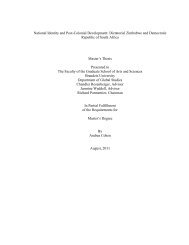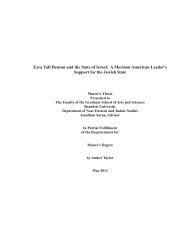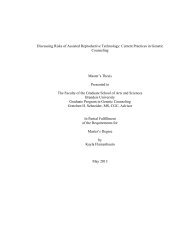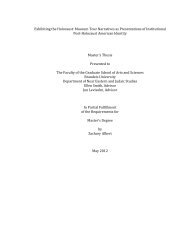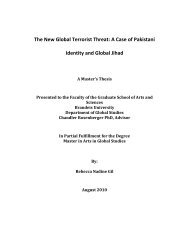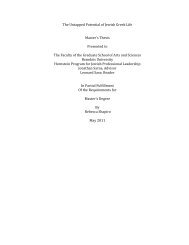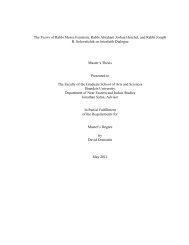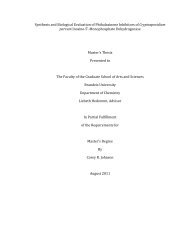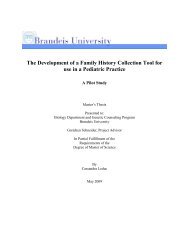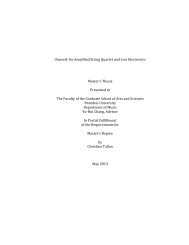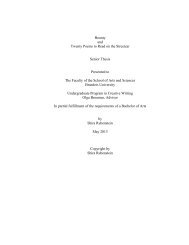A Familiar Frontier: The Kennedy Administration in the Congo ...
A Familiar Frontier: The Kennedy Administration in the Congo ...
A Familiar Frontier: The Kennedy Administration in the Congo ...
Create successful ePaper yourself
Turn your PDF publications into a flip-book with our unique Google optimized e-Paper software.
<strong>Congo</strong> crisis began well before America had even taken notice of <strong>the</strong> new nation, andviolence cont<strong>in</strong>ued after <strong>the</strong> American-backed Mobutu was deposed, with Kabila fight<strong>in</strong>ga second war <strong>in</strong> 1998 before dy<strong>in</strong>g under mysterious circumstances.Yet <strong>the</strong>re is no evidence that <strong>the</strong> United States set out to sow disarray or conflict<strong>in</strong> <strong>the</strong> <strong>Congo</strong>. Nei<strong>the</strong>r Eisenhower nor <strong>Kennedy</strong> had anyth<strong>in</strong>g to ga<strong>in</strong> through <strong>the</strong> chaosand brutality that characterized <strong>the</strong> <strong>Congo</strong> for much of 1960 and 1961. Indeed, <strong>the</strong> goal ofboth <strong>Adm<strong>in</strong>istration</strong>s was quite <strong>the</strong> opposite, to establish a stable and peaceful state <strong>in</strong> <strong>the</strong><strong>Congo</strong>, both for access to <strong>the</strong> country’s m<strong>in</strong>eral resources and also to deny <strong>the</strong> spread ofcommunism <strong>in</strong>to central Africa. <strong>The</strong> United States realized that <strong>in</strong> <strong>the</strong> <strong>Congo</strong>, as <strong>in</strong> muchof <strong>the</strong> Third World, it could pursue its <strong>in</strong>terests strongly without endur<strong>in</strong>g much scrut<strong>in</strong>yfrom <strong>the</strong> <strong>in</strong>ternational community. Worldwide attention was rarely focused on <strong>the</strong> <strong>Congo</strong>,certa<strong>in</strong>ly less than it might have been given <strong>the</strong> years of violence and political turmoil.Indeed, G. Mennen Williams found that <strong>the</strong> U.S. stand<strong>in</strong>g <strong>in</strong> Africa was improved by itshandl<strong>in</strong>g of <strong>the</strong> <strong>Congo</strong> Crisis, itself a stark commentary on <strong>the</strong> neglect of <strong>the</strong> Eisenhower<strong>Adm<strong>in</strong>istration</strong>.In <strong>the</strong> end, <strong>the</strong> policies of Eisenhower and <strong>Kennedy</strong> were substantially similarbecause <strong>the</strong>ir po<strong>in</strong>ts of view on Africa turned out to be more similar than ei<strong>the</strong>r mighthave anticipated. <strong>Kennedy</strong> considered <strong>the</strong> question more carefully than Eisenhower, bu<strong>the</strong> ultimately jo<strong>in</strong>ed his predecessor <strong>in</strong> <strong>the</strong> belief that mean<strong>in</strong>gful cooperation with <strong>the</strong>countries of Africa was not worth its costs, if it led to tensions with America’s Europeanallies or <strong>the</strong> possibility of a communist victory on <strong>the</strong> cont<strong>in</strong>ent. For all <strong>the</strong> effortexpended by <strong>the</strong> U.S. to deal with <strong>the</strong> <strong>Congo</strong> Crisis, genu<strong>in</strong>e American <strong>in</strong>terests <strong>in</strong> <strong>the</strong>country were fairly weak, someth<strong>in</strong>g that <strong>Kennedy</strong> came to realize. This meant that for95





